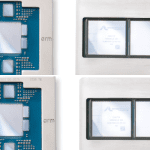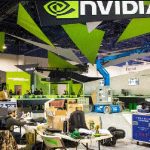Nvidia CEO Jensen Huang has announced that the company will begin sending engineering samples of its next Blackwell processors for AI applications this week.
Nvidia is sending samples of Blackwell B100 and B200 CPUs, which will be commercially available in the fourth quarter.
In reality, considering that Nvidia’s hardware partners, such as Foxconn, Quanta, Wistron, Pegatron, and Asus, showcased Blackwell-based servers at Computex, they may have been experimenting with Blackwell CPUs for some time. However, not all software developers have yet had access to Nvidia’s next chips for AI and HPC applications.
According to a Morgan Stanley report, Nvidia and its partners will charge about $2 million to $3 million per AI server cabinet equipped with Blackwell GPUs. To date, Nvidia has introduced two reference server cabinets: the NVL36, with 36 B200 GPUs, priced around $2 million, and the NVL72, with 72 B200 GPUs, starting at $3 million.
These cabinets, also known as PODs, will be available from Nvidia, traditional partners like Foxconn, Quanta, Wistron, and newcomers like Asus. Morgan Stanley expects Nvidia to ship 60,000 to 70,000 B200 server cabinets next year, generating at least $210 billion in revenue.
It is widely expected that that major companies, such as AWS, Dell, Google, Meta, and Microsoft will adopt Nvidia’s Blackwell GPUs.
While the AI crowd is eagerly expecting Blackwell CPUs for artificial intelligence applications, gamers are awaiting next-generation GeForce RTX 50-series graphics cards based on the Blackwell architecture.
Nvidia CEO Jensen Huang has announced that the company will begin sending engineering samples of its next Blackwell processors for AI applications this week.
Nvidia is sending samples of Blackwell B100 and B200 CPUs, which will be commercially available in the fourth quarter.
In reality, considering that Nvidia’s hardware partners, such as Foxconn, Quanta, Wistron, Pegatron, and Asus, showcased Blackwell-based servers at Computex, they may have been experimenting with Blackwell CPUs for some time. However, not all software developers have yet had access to Nvidia’s next chips for AI and HPC applications.
According to a Morgan Stanley report, Nvidia and its partners will charge about $2 million to $3 million per AI server cabinet equipped with Blackwell GPUs. To date, Nvidia has introduced two reference server cabinets: the NVL36, with 36 B200 GPUs, priced around $2 million, and the NVL72, with 72 B200 GPUs, starting at $3 million.
These cabinets, also known as PODs, will be available from Nvidia, traditional partners like Foxconn, Quanta, Wistron, and newcomers like Asus. Morgan Stanley expects Nvidia to ship 60,000 to 70,000 B200 server cabinets next year, generating at least $210 billion in revenue.
It is widely expected that that major companies, such as AWS, Dell, Google, Meta, and Microsoft will adopt Nvidia’s Blackwell GPUs.
While the AI crowd is eagerly expecting Blackwell CPUs for artificial intelligence applications, gamers are awaiting next-generation GeForce RTX 50-series graphics cards based on the Blackwell architecture.
Nvidia CEO Jensen Huang has announced that the company will begin sending engineering samples of its next Blackwell processors for AI applications this week.
Nvidia is sending samples of Blackwell B100 and B200 CPUs, which will be commercially available in the fourth quarter.
In reality, considering that Nvidia’s hardware partners, such as Foxconn, Quanta, Wistron, Pegatron, and Asus, showcased Blackwell-based servers at Computex, they may have been experimenting with Blackwell CPUs for some time. However, not all software developers have yet had access to Nvidia’s next chips for AI and HPC applications.
According to a Morgan Stanley report, Nvidia and its partners will charge about $2 million to $3 million per AI server cabinet equipped with Blackwell GPUs. To date, Nvidia has introduced two reference server cabinets: the NVL36, with 36 B200 GPUs, priced around $2 million, and the NVL72, with 72 B200 GPUs, starting at $3 million.
These cabinets, also known as PODs, will be available from Nvidia, traditional partners like Foxconn, Quanta, Wistron, and newcomers like Asus. Morgan Stanley expects Nvidia to ship 60,000 to 70,000 B200 server cabinets next year, generating at least $210 billion in revenue.
It is widely expected that that major companies, such as AWS, Dell, Google, Meta, and Microsoft will adopt Nvidia’s Blackwell GPUs.
While the AI crowd is eagerly expecting Blackwell CPUs for artificial intelligence applications, gamers are awaiting next-generation GeForce RTX 50-series graphics cards based on the Blackwell architecture.
Nvidia CEO Jensen Huang has announced that the company will begin sending engineering samples of its next Blackwell processors for AI applications this week.
Nvidia is sending samples of Blackwell B100 and B200 CPUs, which will be commercially available in the fourth quarter.
In reality, considering that Nvidia’s hardware partners, such as Foxconn, Quanta, Wistron, Pegatron, and Asus, showcased Blackwell-based servers at Computex, they may have been experimenting with Blackwell CPUs for some time. However, not all software developers have yet had access to Nvidia’s next chips for AI and HPC applications.
According to a Morgan Stanley report, Nvidia and its partners will charge about $2 million to $3 million per AI server cabinet equipped with Blackwell GPUs. To date, Nvidia has introduced two reference server cabinets: the NVL36, with 36 B200 GPUs, priced around $2 million, and the NVL72, with 72 B200 GPUs, starting at $3 million.
These cabinets, also known as PODs, will be available from Nvidia, traditional partners like Foxconn, Quanta, Wistron, and newcomers like Asus. Morgan Stanley expects Nvidia to ship 60,000 to 70,000 B200 server cabinets next year, generating at least $210 billion in revenue.
It is widely expected that that major companies, such as AWS, Dell, Google, Meta, and Microsoft will adopt Nvidia’s Blackwell GPUs.
While the AI crowd is eagerly expecting Blackwell CPUs for artificial intelligence applications, gamers are awaiting next-generation GeForce RTX 50-series graphics cards based on the Blackwell architecture.
Nvidia CEO Jensen Huang has announced that the company will begin sending engineering samples of its next Blackwell processors for AI applications this week.
Nvidia is sending samples of Blackwell B100 and B200 CPUs, which will be commercially available in the fourth quarter.
In reality, considering that Nvidia’s hardware partners, such as Foxconn, Quanta, Wistron, Pegatron, and Asus, showcased Blackwell-based servers at Computex, they may have been experimenting with Blackwell CPUs for some time. However, not all software developers have yet had access to Nvidia’s next chips for AI and HPC applications.
According to a Morgan Stanley report, Nvidia and its partners will charge about $2 million to $3 million per AI server cabinet equipped with Blackwell GPUs. To date, Nvidia has introduced two reference server cabinets: the NVL36, with 36 B200 GPUs, priced around $2 million, and the NVL72, with 72 B200 GPUs, starting at $3 million.
These cabinets, also known as PODs, will be available from Nvidia, traditional partners like Foxconn, Quanta, Wistron, and newcomers like Asus. Morgan Stanley expects Nvidia to ship 60,000 to 70,000 B200 server cabinets next year, generating at least $210 billion in revenue.
It is widely expected that that major companies, such as AWS, Dell, Google, Meta, and Microsoft will adopt Nvidia’s Blackwell GPUs.
While the AI crowd is eagerly expecting Blackwell CPUs for artificial intelligence applications, gamers are awaiting next-generation GeForce RTX 50-series graphics cards based on the Blackwell architecture.
Nvidia CEO Jensen Huang has announced that the company will begin sending engineering samples of its next Blackwell processors for AI applications this week.
Nvidia is sending samples of Blackwell B100 and B200 CPUs, which will be commercially available in the fourth quarter.
In reality, considering that Nvidia’s hardware partners, such as Foxconn, Quanta, Wistron, Pegatron, and Asus, showcased Blackwell-based servers at Computex, they may have been experimenting with Blackwell CPUs for some time. However, not all software developers have yet had access to Nvidia’s next chips for AI and HPC applications.
According to a Morgan Stanley report, Nvidia and its partners will charge about $2 million to $3 million per AI server cabinet equipped with Blackwell GPUs. To date, Nvidia has introduced two reference server cabinets: the NVL36, with 36 B200 GPUs, priced around $2 million, and the NVL72, with 72 B200 GPUs, starting at $3 million.
These cabinets, also known as PODs, will be available from Nvidia, traditional partners like Foxconn, Quanta, Wistron, and newcomers like Asus. Morgan Stanley expects Nvidia to ship 60,000 to 70,000 B200 server cabinets next year, generating at least $210 billion in revenue.
It is widely expected that that major companies, such as AWS, Dell, Google, Meta, and Microsoft will adopt Nvidia’s Blackwell GPUs.
While the AI crowd is eagerly expecting Blackwell CPUs for artificial intelligence applications, gamers are awaiting next-generation GeForce RTX 50-series graphics cards based on the Blackwell architecture.
Nvidia CEO Jensen Huang has announced that the company will begin sending engineering samples of its next Blackwell processors for AI applications this week.
Nvidia is sending samples of Blackwell B100 and B200 CPUs, which will be commercially available in the fourth quarter.
In reality, considering that Nvidia’s hardware partners, such as Foxconn, Quanta, Wistron, Pegatron, and Asus, showcased Blackwell-based servers at Computex, they may have been experimenting with Blackwell CPUs for some time. However, not all software developers have yet had access to Nvidia’s next chips for AI and HPC applications.
According to a Morgan Stanley report, Nvidia and its partners will charge about $2 million to $3 million per AI server cabinet equipped with Blackwell GPUs. To date, Nvidia has introduced two reference server cabinets: the NVL36, with 36 B200 GPUs, priced around $2 million, and the NVL72, with 72 B200 GPUs, starting at $3 million.
These cabinets, also known as PODs, will be available from Nvidia, traditional partners like Foxconn, Quanta, Wistron, and newcomers like Asus. Morgan Stanley expects Nvidia to ship 60,000 to 70,000 B200 server cabinets next year, generating at least $210 billion in revenue.
It is widely expected that that major companies, such as AWS, Dell, Google, Meta, and Microsoft will adopt Nvidia’s Blackwell GPUs.
While the AI crowd is eagerly expecting Blackwell CPUs for artificial intelligence applications, gamers are awaiting next-generation GeForce RTX 50-series graphics cards based on the Blackwell architecture.
Nvidia CEO Jensen Huang has announced that the company will begin sending engineering samples of its next Blackwell processors for AI applications this week.
Nvidia is sending samples of Blackwell B100 and B200 CPUs, which will be commercially available in the fourth quarter.
In reality, considering that Nvidia’s hardware partners, such as Foxconn, Quanta, Wistron, Pegatron, and Asus, showcased Blackwell-based servers at Computex, they may have been experimenting with Blackwell CPUs for some time. However, not all software developers have yet had access to Nvidia’s next chips for AI and HPC applications.
According to a Morgan Stanley report, Nvidia and its partners will charge about $2 million to $3 million per AI server cabinet equipped with Blackwell GPUs. To date, Nvidia has introduced two reference server cabinets: the NVL36, with 36 B200 GPUs, priced around $2 million, and the NVL72, with 72 B200 GPUs, starting at $3 million.
These cabinets, also known as PODs, will be available from Nvidia, traditional partners like Foxconn, Quanta, Wistron, and newcomers like Asus. Morgan Stanley expects Nvidia to ship 60,000 to 70,000 B200 server cabinets next year, generating at least $210 billion in revenue.
It is widely expected that that major companies, such as AWS, Dell, Google, Meta, and Microsoft will adopt Nvidia’s Blackwell GPUs.
While the AI crowd is eagerly expecting Blackwell CPUs for artificial intelligence applications, gamers are awaiting next-generation GeForce RTX 50-series graphics cards based on the Blackwell architecture.














